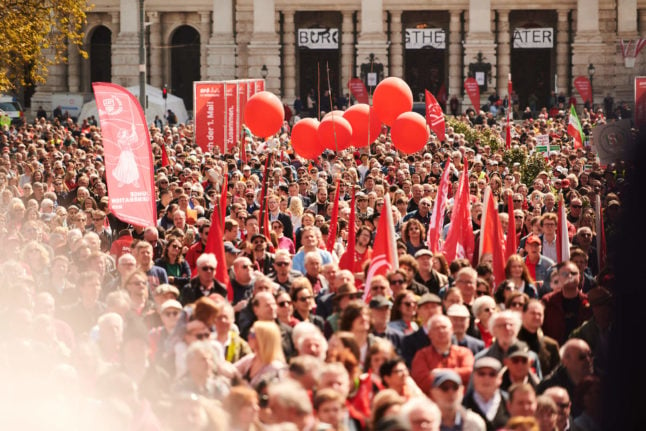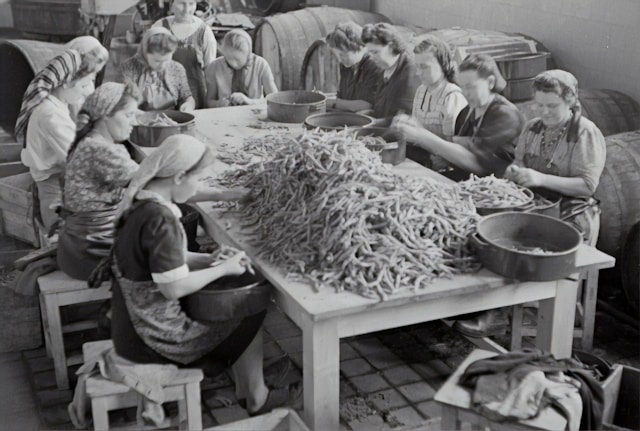On July 18th the Austrian Constitutional Court ruled that receiving TV programs online and streaming them without paying so-called GIS fees is “unconstitutional”.
As a consequence, the court has asked the legislative powers (Austria’s National Council, Federal Council and Federal Assembly) to take action by “closing the streaming gap” by end of 2023.
This raises many questions for residents of Austria.
READ ALSO: EXPLAINED: How to pay Austria’s TV and radio tax, or (legally) avoid it
In which ways could the TV licence change affect people who don’t even own a TV and use their laptops only?
What could be alternatives to mandatory fees and how likely are they? And which preferences do the political players and the population actually have?
Long running debate on TV licence fees
The debate of introducing general TV fees in Austria isn’t new.
For many years Austria’s largest media provider, the Austrian Broadcasting Corporation (ORF), the government and the parties have been discussing ways to solve increasing financial issues. The ORF is not profit-oriented but an independent public media enterprise.
Two-thirds of its revenue comes from TV licence fees, that is, from households paying a monthly charge. These fees were increased on February 1st this year and now range from €22.45 to €28.65, depending on the state due to varying taxes.
According to a recent survey by the European Broadcasting Union (EBU), Austria is the most expensive EU country with regards to annual television fees.
More than 25,000 payers missing in 2022
Beginning of this year, Roland Weißmann became the corporation’s new CEO. He warned the ORF foundation council members about a minus of approximately €12 million, which he considered to be an effect of the constantly declining numbers of GIS payers.
In Austria, the younger generations in particular prefer streaming on their laptops or mobile devices, or they have switched to alternative private channels like Netflix and YouTube to avoid the fees.
Because of this trend, Weißmann stated a decrease of about 25,400 paying households for this year, an overall loss of more than €5.5 million for the corporation.
In 2015, Austria’s Supreme Administrative Court accepted a Viennese man’s objection to paying GIS fees for listening to radio programmes on his computer.
That ruling was regarded as a breakthrough for streamers and all those refusing GIS charges. The ORF, however, swore to “close this legal gap” and revive the debate of introducing “household fees” in the near future. The latest ruling by the Constitutional Court is definite. Although many Austrians and foreign residents hope to see licence fees abolished in Austria like in France, chances are rather slim.

READ ALSO: Cost of living: Seven tips to save money in Austria
Household fees becoming more likely
So what are the options for the legislative powers to close the gap between streamers and TV owners? The two coalition partners still disagree, the ÖVP being against a new tax while the Green Party advocates a “household fee”.
This option, based on similar models in Germany and Switzerland, seems pretty likely for a number of reasons: The administrative efforts of control would be minor as four million households would be obliged to pay, regardless of having a television set at home or not.
Charges could also be lowered to about €18 a month (as in Germany) and more easily adapted to the real household income. The rates, however, would also be raised every year.
Another alternative preferred by a large number of users in forums would be a “pay-wall” for watching ORF content online. Many viewers consider this to be the only fair solution because, they say, one shouldn’t pay for a service not consumed. Logins and access keys may be easily abused, though. Besides, a pay-wall wouldn’t solve the corporation’s biggest issue, its decreasing revenues.
While the government hasn’t come to a decision yet, the TV licence is going to be a hot topic at the next elections. Other party members have already commented on the debate: The Socialist Party (SPÖ) strongly supports licence fees in order to consolidate a politically independent and unbiased national broadcasting corporation. NEOS calls for affordable household fees based on real income.
Only the right-wing FPÖ demands GIS fees to be dropped like at present in France and presumably in the United Kingdom as well.
Their strong rejection of TV licence fees is expected to attract many angry voters at the expense of the ruling ÖVP. With state elections ahead in Tyrol, this could also explain why the ÖVP is still refusing to give a clear statement on this topic.
Will a referendum change anything?
Many people who don’t watch ORF state that the quality of the programme has deteriorated over the past few years.
They criticise permanent reruns of German soap operas, old American sitcoms and crime series, in particular. On channels like Netflix, some young people said, they are free to pick what they like, even if they have to pay.
In the Standard forum posters also complain about the poor quality on ORF channels. Not surprisingly, some feel very angry about the recent court ruling. Others support a referendum which has been initiated and approved.
Citizens opposing GIS charges can sign it from September 19th until September 26th. Similar popular initiatives concerning the abolition of TV fees were launched in Austria in the past.
However, even if more than 100,000 persons sign the referendum, it won’t have any legal effect. Sooner or later the government needs to make a decision which certainly isn’t going to be very popular.




 Please whitelist us to continue reading.
Please whitelist us to continue reading.
Member comments